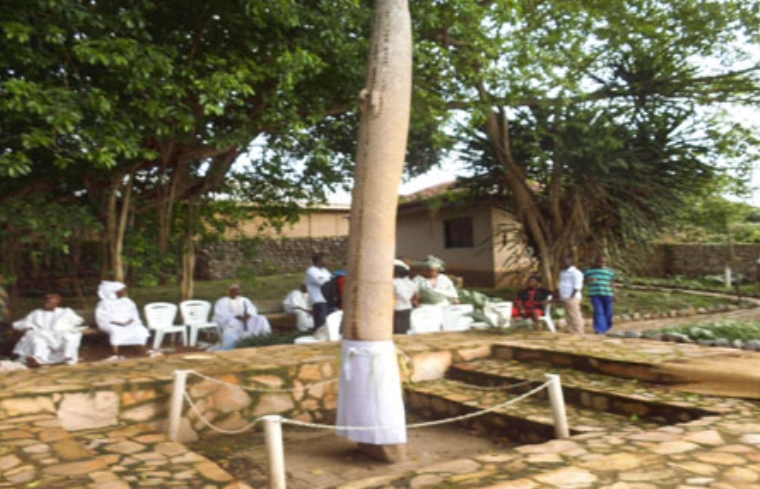
support@yorubalibrary.com
+2348073529208, 07038599574

The Oranmiyan is one of the top Yoruba deities. Oranmiyan Festival is a significant cultural event in Yoruba land, celebrating the legendary hero Oranmiyan, one of the most revered figures in Yoruba history. This festival, rich in tradition and cultural heritage, serves as a platform to honor Oranmiyan's legacy and promote Yoruba culture.
The Historical Significance of Oranmiyan
Oranmiyan, a legendary prince and warrior, is a prominent figure in Yoruba mythology and history. He is credited with founding several Yoruba kingdoms, including Oyo and Benin, and is revered for his bravery, leadership, and contributions to the spread of Yoruba civilization. His exploits and achievements have been passed down through generations, making him a symbol of strength and unity among the Yoruba people.
The Origins of the Oranmiyan Festival
The Oranmiyan Festival is held annually in Ile-Ife, the spiritual heart of the Yoruba people, and other locations associated with Oranmiyan's legacy. The festival aims to commemorate his contributions to Yoruba culture and history, as well as to strengthen the cultural bonds within the community.
Key Components of the Oranmiyan Festival
1. Cultural Processions
Royal Processions: The festival often begins with a grand procession featuring the Ooni of Ife and other Yoruba kings. Dressed in traditional regalia, they pay homage to Oranmiyan at his memorial sites.
Masquerades and Performers: Colorful masquerades, dancers, and drummers parade through the streets, showcasing the rich cultural heritage of the Yoruba people.
2. Traditional Ceremonies
Ritual Offerings: Priests and community elders perform rituals and offer sacrifices to honor Oranmiyan and seek his blessings for peace and prosperity.
Prayer Sessions: Prayers are offered to the gods and ancestors, seeking their guidance and protection for the community.
3. Cultural Exhibitions and Performances
Traditional Music and Dance: Performances by local musicians and dancers celebrate Yoruba music and dance forms, including Bata and Dundun drumming.
Art and Craft Exhibitions: Artisans display traditional Yoruba crafts, such as beadwork, pottery, and textiles, highlighting the community's artistic talents.
4. Educational and Historical Events
Lectures and Workshops: Scholars and cultural historians give lectures on Oranmiyan's life and legacy, as well as on the broader history and traditions of the Yoruba people.
Storytelling Sessions: Elders share folktales and historical accounts, passing down important cultural knowledge to younger generations.
5. Community Activities
Feasting and Communal Meals: The festival includes communal feasts where traditional Yoruba dishes are shared, fostering a sense of unity and community.
Sporting Events: Traditional sports, such as wrestling and archery, are held to celebrate Yoruba physical prowess and competitive spirit.
Modern Adaptations and Significance
The Oranmiyan Festival has evolved over time, incorporating modern elements while preserving its traditional roots. It serves not only as a cultural celebration but also as a tourist attraction, drawing visitors from around the world. This influx of visitors helps to promote Yoruba culture globally and supports the local economy.
Promoting Yoruba Culture and Unity
The Oranmiyan Festival plays a crucial role in promoting Yoruba culture and unity. By celebrating their shared heritage and honoring a common hero, the Yoruba people reaffirm their cultural identity and strengthen their communal bonds. The festival also serves as a platform for addressing contemporary issues, promoting social cohesion, and fostering a sense of pride in Yoruba heritage.
Conclusion
The Oranmiyan Festival is a vibrant and meaningful celebration of Yoruba culture, history, and community. It honors the legacy of Oranmiyan, a legendary figure whose contributions continue to inspire and unite the Yoruba people. Through traditional ceremonies, cultural exhibitions, and community activities, the festival reinforces the rich cultural heritage of the Yoruba and promotes its continued relevance in the modern world.

Learn about the Yoruba concept of Ìwà Pẹ̀lẹ́ (good…

Learn special praises for Divine Being and Creator…